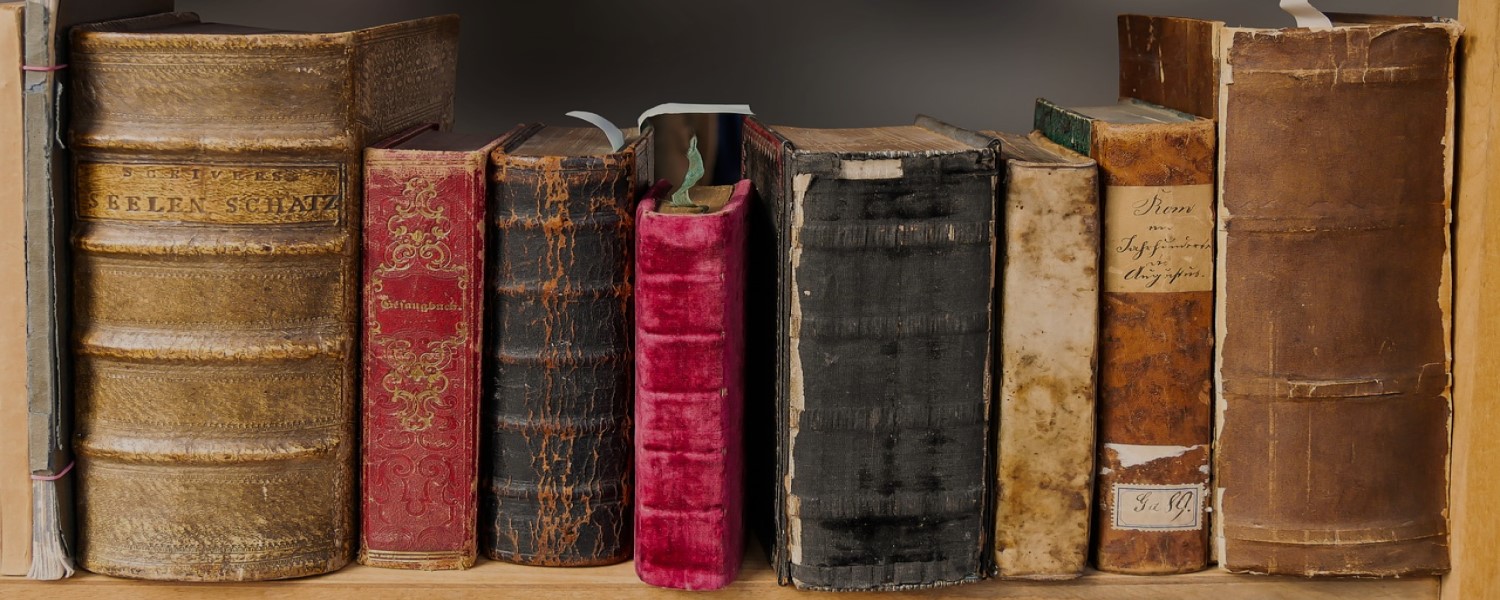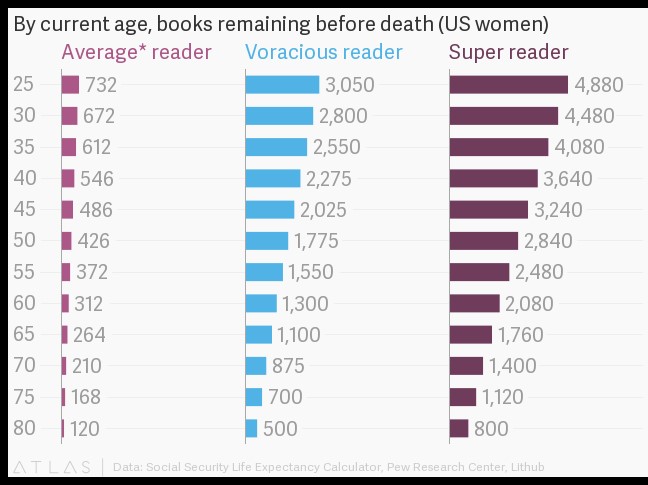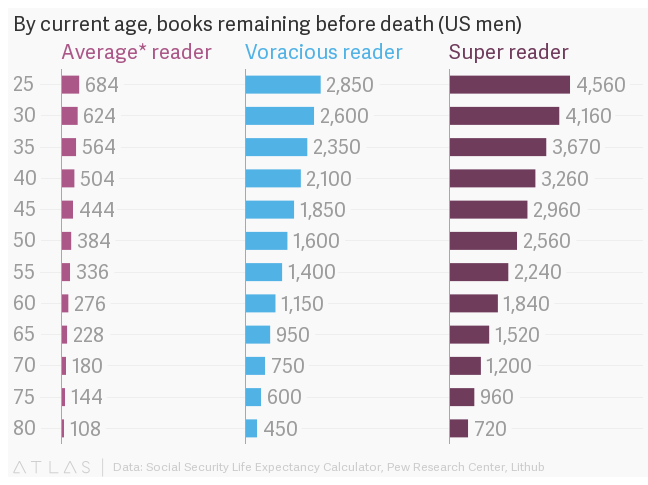This is How to Read Better: Leaders are Readers!
A lot of my friends ask me how I am not only able to read so much, but also retain so much of what I read.
I wish I had a silver bullet I could share with you, but there is no one answer. However, I do believe there are many factors that combined have enabled me to read better, which has resulted in my being able to read between 5 to 7 books every week.
You probably think I have no life or don’t do anything else to be able to read as much as I do. Actually, I do have a life, write a ton, workout a couple hours a day and do a bunch of other stuff too.
Part of it is that I have always been an avid reader. I believe it stemmed from my childhood when my Mom would take us to the library and let us get a few books each. Since then, I have constantly improved my reading skills and learned many tricks on how to read better.

How many books do you think the median American reads in a year?
Well, according to the Pew Research Center, the median American reads 4 books a year!
I am not saying you need to go nuts and read as much as I do, but a book a week is certainly doable. And just think of how much better your time will be spent reading instead of watching TV or messing around on social media!
On That Note…
I will now share some of the tricks I have learned over the years on how to read better:
(1) Figuring out what to read
There are a multitude of ways I find good books to read:
 Scribd – I subscribe to Scribd, which is like Netflix for books. It is a subscription-based model where you download the app on your phone or tablet then have unlimited access to as many books, audiobooks, magazines, and articles as you want. Similar to Netflix, it learns what you like and then makes recommendations. Plus, reading as much as I do can be expensive, so Scribd’s all you can read buffet helps satiate my reading appetite.
Scribd – I subscribe to Scribd, which is like Netflix for books. It is a subscription-based model where you download the app on your phone or tablet then have unlimited access to as many books, audiobooks, magazines, and articles as you want. Similar to Netflix, it learns what you like and then makes recommendations. Plus, reading as much as I do can be expensive, so Scribd’s all you can read buffet helps satiate my reading appetite.
 Friends – I am always asking my friends or people I meet what they are reading. It’s a great conversation starter and has resulted in my being introduced to some really great books. On that note, if you have any great suggestions, let me know!
Friends – I am always asking my friends or people I meet what they are reading. It’s a great conversation starter and has resulted in my being introduced to some really great books. On that note, if you have any great suggestions, let me know!
 Bestseller lists – The bestseller lists from the NY Times, USA Today, Wall Street Journal and Amazon.com can be another great way to find out about the latest and greatest books.
Bestseller lists – The bestseller lists from the NY Times, USA Today, Wall Street Journal and Amazon.com can be another great way to find out about the latest and greatest books.
 Articles on best books – Googling best books on various subjects often yields a treasure trove of new book ideas!
Articles on best books – Googling best books on various subjects often yields a treasure trove of new book ideas!
 TED talks – I’ve found several great books by watching TED talks as many TED talks are based on books the speaker has written.
TED talks – I’ve found several great books by watching TED talks as many TED talks are based on books the speaker has written.
 Books – Books themselves or articles are another great source for finding good books as they many times reference other books.
Books – Books themselves or articles are another great source for finding good books as they many times reference other books.
(2) Don’t read boring stuff!
Don’t waste time reading stuff that will put you to sleep, that is unless you have to for work or whatever else. Otherwise, read stuff you are interested in, it will be more enjoyable, and you will retain more.
(3) Do a little recon before you read
A lot of times I will do a little background research before I get a book. Understanding who the writer is, and why they wrote the book will give you a good idea if the book will be of interest to you. I also check out the table of contents to see what’s in store. Sometimes I will check out the reviews on Amazon, but I don’t put too much stock into negative reviews as each book isn’t for everyone.
(4) Make the time and then schedule it!
If you read our recent post on time logging you will know that the average person in the U.S. spends 3 hours and 48 minutes a day on computers, tablets and smartphone devices and over 4 hours a day watching TV!
Personally, I don’t watch TV and spend little time on social media. Hence, that is one of my secrets to reading so much.
It is also a great idea to schedule your reading time and make time for it like you would anything else. You deserve a little ‘me’ time.
(5) Environment is key
Where you read, in my opinion, is important. It should be somewhere that is quiet, where you are free from distraction and able to focus.
(6) Vary your reading
I like to switch up what I read to keep things interesting and make me a more well-rounded person. I mostly read non-fiction but within non-fiction, I switch it up between biographies, self-improvement, business, psychology, health & fitness, history, lifestyle, spirituality etc.
(7) Be ok with stopping
If you start reading a book and it sucks, stop! There is no need to delay your agony anymore. Continuing to do something because you have already invested time or money (or both) into it is giving in to the sunk cost fallacy – and it is a losing strategy. Cut your losses and read something else.
(8) Divide and conquer
The average person reads 200-250 words per minute and the average non-fiction book is 50,000 words with longer ones at 75,000 words.
Just for fun, let’s say the average person reads at 200 words per minute and the average book is 50,000 words. That means it would take 250 minutes or just over 4 hours to read the average book, which is about 35 minutes a day.
My point is this, all you have to do to read a book a week is read 35 minutes a day.
(9) Get your head right before you read
Figure out the purpose or reason you are reading. Is it for pleasure? Are you trying to learn something new? Knowing your purpose going in will help you focus better.
(10) Focus
Speaking of focus, be willing to give the book your undivided attention for however long you are reading. Turn off your phone and limit distractions and really try to be present with the book.
(11) Use a visual pacer
While many teachers try to dissuade you from using a visual pacer, it has been a gamechanger for me.
By simply using a pen or your finger as a guide you will be able to focus better on what you are reading. Some say it helps your reading speed as well.
Our eyes are attracted to motion and by using a visual pacer to create motion means your eyes will automatically follow. It feels a like awkward at first but once you get used to it, it feels more natural.
(12) Increase your retention
3 strategies I use for increasing my retention of what I read are:
Taking notes!
In my opinion, it doesn’t matter so much how you take notes, but rather the fact that you find a system that works for you. That is if you want to retain what you are reading.
According to the Ebbinghaus’ Forgetting Curve which we discussed in a post on note-taking methods, if we have done nothing with the information that we have learned we will have forgotten roughly half of it within an hour, 70% of it within a day and 90% within a week.
Nowadays most of the books I read are on my iPad. So, I highlight stuff with my finger and then once I have finished the book, I go back and translate my highlights into a notebook. I then add questions, key takeaways and then connect whatever dots I need to. If you are reading a hardcover or paperback book you can highlight, write notes in the margin or on the blank pages in the book.
Review notes
On a weekly basis, I will review the notes of the books I read to help cement key concepts into my brain.
Teaching to Learn
One of the best ways to learn is to teach or discuss something. Books are no exception and just by discussing them with friends can help increase your retention.
I read a lot but it’s not a race. While I do read a sizable volume, it doesn’t matter how much you read if you aren’t retaining what you read, hence the importance of taking notes and reviewing. Quality is more important than quantity.
(13) Leverage audiobooks
Another idea on how to read better and increase the amount you read is audiobooks. Whether you are driving, going for a walk, at the gym, commuting; there are times that are perfect for audiobooks.
I prefer actual books, but I do listen to at least 1 audiobook per week. I also increase the speed to 1.5x which lets me get through even more without diminishing my ability to process what they are saying.
(14) Say no to book summary services
I am not a big fan of book summary services, I think it is cheating and misses the point of both reading and learning, plus you aren’t getting the full experience that the book offers.
(15) Take breaks
I believe it is important to give your eyes and brain a break, even for a couple of minutes. I usually read for a half hour, take a break, and then resume.

(16) Keep a list
Lastly, I have a running list of what I have already read as well as the next books I want to read. This does a couple of things. First, it shows you how much you have read and progressed. Second, you don’t waste time looking at what to read next. Every time I find a new book I want to read, I add it to the list.
That’s it for my 16 tips on how to read better. Do you have any other go-to tips on how to read better? Do you have any good non-fiction books you would recommend? Please share your thoughts in the comments below!
By the Way…
Are you curious as to how many books you will read before you die based on your age, sex (gender not naughty time), and reading habits?
Interestingly, writer Emily Temple from literaryhub.com used data from the Social Security Life Expectancy Calculator as well as data from the Pew Research Center to get you that information.
It was neatly summarized in the charts below on Quartz.com:


As Dr. Seuss says:
“The more that you read, the more things you will know. The more that you learn, the more places you’ll go.”
On that note, it is time for this bookworm to end this blog post…and go read a book!
Until next time, remember leaders are readers, keep finding ways for how to read better, and as always…PYMFP!
–Rick
Use it or Lose It – How to Read Better
Some tips for how to read better that we discussed today are:
(1) Figuring out what to read: Scribd, asking friends, bestseller lists, articles, TED Talks, books themselves
(2) Don’t read boring stuff!
(3) Recon before you read
(4) Make the time and then schedule it!
(5) Environment is key
(6) Vary your reading
(7) Be ok with stopping
(8) Divide and conquer
(9) Get your head right before you read
(10) Focus
(11) Use a visual pacer
(12) Increase your retention – take notes, review notes, teach to learn
(13) Leverage audiobooks
(14) Say no to book summary service
(15) Take breaks
(16) Keep a list
When to Use It
Use these tips for how to read better whenever you are reading.
What Do You Think?
Are you a reader? Do you have any tips on how to read better that I missed? Please share your thoughts in the comments below!
If you enjoyed this post, it would mean the world to us if you shared it with people you care about via any of the social media platforms below!
Popular Previous Posts:
Use These Applications of Opportunity Cost to Choose Better
The David Goggins Story: Prepare to Be Inspired!
11 Tony Robbins Quotes That Will Make You Think
Productive Procrastination: Not All Procrastination is Bad!
References
https://lithub.com/how-many-books-will-you-read-before-you-die/
https://qz.com/939276/how-many-books-will-you-read-before-you-die/

I used to read nonfiction but now that I have retired I read mostly fiction. I read for entertainment and I always travel with a book. The thing is if I get going on a good book I don’t get anything else done until I finish the book. That’s okay too! Lol I wish more people were avid readers as you are. Congratulations
Hi Eileen, As long as you read, whether it is fiction or non-fiction, that is what is important. It’s so much better for you than watching TV or messing around on social media. Be good, Rick
I have always enjoyed reading. Primarily history and biography, although I will not refuse a good mystery – think Christie or Gardner or Queen.
Of your 16 tips, I believe the most important is (2) – Don’t read boring, uninteresting stuff. Start early and make reading fun rather than an onerous task, then book sales and library usage will increase. I sure wish English teachers understood this – books that are assigned reading in school are 99% yawn inducing. I mean things like Victorian era novels that have zero relevance to today’s life style, and yes, I also include Shakespeare. Kids cannot relate to this stuff, its antiquated language and social situations have no relevance in today’s world. If Shakespeare could be translated into modern English, then maybe Hamlet and Macbeth would hold a student’s interest. Every once in a while a teacher gets it right – Lord of the Flies, Fahrenheit 451 – but those instances are very few.
For one high school English class, the teacher required the class over a weekend to memorize some passage (in one of the King plays) from Shakespeare, and then on Monday write it in class and hand it in for grading. I don’t even remember what play. I wasted an entire Sunday committing it to memory. With it fresh in my short term memory, I regurgitated it Monday afternoon, and promptly forgot it.
Read for fun and entertainment and personal knowledge, and you will retain the material. Read because some old biddy of an English teacher assigns it, and you will remember zilch. I cannot even recall the titles of most of the assigned readings in school.
Hi Dave, Glad to hear you too are an avid reader! Totally agree with your assessment of much of what we had to read in school, hard to learn when stuff is boring. We had to do the same thing w/ the Hamlet, ‘to be or not to be’ soliloquy – total waste of time, I too forgot it the next day! Thanks and be good, Rick